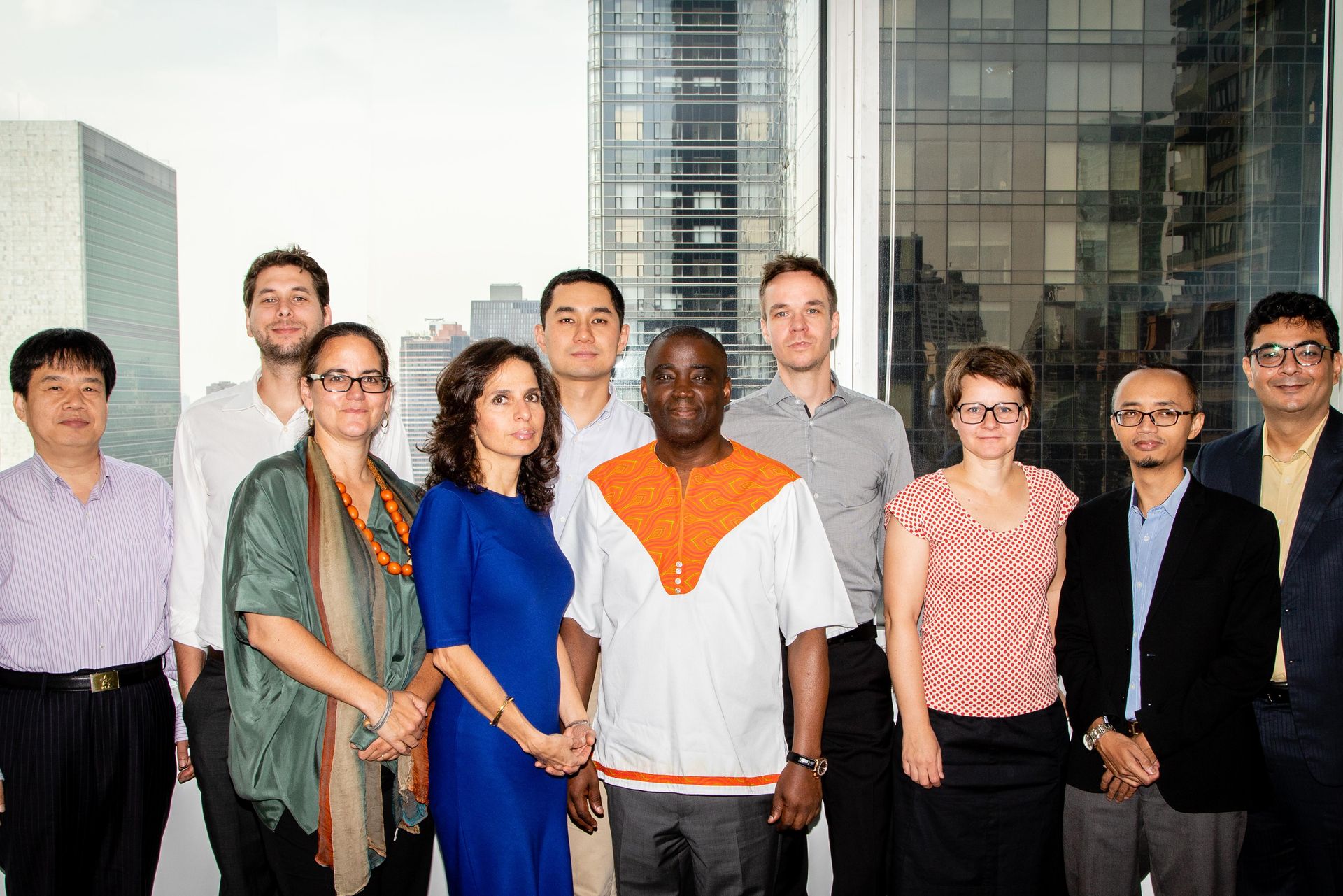The 2030 Agenda for Sustainable Development, adopted by 193 countries, is a system of goals for socially just development within the ecological limits of the earth. It can meet such challenges. The public sector has a key role in the implementation of the 2030 Agenda. Policymakers and administration are under a great deal of time, political and social pressure to establish the framework conditions. They must decide whether and how natural resources will be used sustainably and how national economies can be interconnected under fair conditions while at the same time protecting personal data.

Integrating the Sustainability Agenda into Education
The implementation of the 2030 Agenda places special demands on officials and civil servants. They will need to network with each other internationally and locally, coordinate with private business and civil society, and also be capable of making sense of thousands of performance indicators and aligning the global sustainability goals to the local needs of citizens. To achieve this, civil servants require skills that are relevant to the 2030 Agenda. This includes not only knowledge of the sustainability goals themselves but also social and communication skills to create partnerships with various actors to implement the Agenda, in view of the increasing urgency and pressure to act.

Officials and employees acquire most of their knowledge and practical skills at colleges, academies and schools of public administration. These training-institutions will therefore need to increase their focus on the sustainability goals and the competences required for their future implementation. This can be done as part of the education in preparation for entry into service or through continuing education at a later career phase. Given the key position held by schools of public administration within the education system of the civil service, they are an entry point with especially strong leverage for the extensive integration of the global sustainability goals.

However, schools and universities are facing major challenges in many countries. It is not easy to define the areas and target groups that need these training programmes and would benefit the most from them. Furthermore, some educational institutions lack the knowledge and skills necessary to develop up-to-date training courses on the 2030 Agenda. Another problem is that the leadership of schools and academies can lack awareness of the relevance and importance of the 2030 Agenda and do not alwasy actively support the inclusion of the relevant content in the curriculums.
Action Plan of the ‘Managing Global Governance’ Programme (MGG)
This is where an initiative launched by the German Development Institute (DIE) in 2018 comes in. Working together with schools of public administration in Brazil, China, India, Indonesia, Mexico and South Africa and United Nations institutions, an action plan aimed at bolstering the public sector for the implementation of the 2030 Agenda was developed within the framework of the ‘Managing Global Governance’ programme (MGG). The cooperation between these countries is of special significance. Due to their geographical size, large populations, natural resources and influence on their respective regions, they play a special role in dealing with global challenges. The development of new capacity development programmes for key groups is at the core of a joint action plan. This includes the educational faculty of the civil service, which participate in ‘train the trainers’ formats in order to achieve the qualifications needed to implement continuing education programmes on the 2030 Agenda. The second key group consists of executives in the public sector, whose support is especially critical to the implementation of the Agenda. The action plan also calls for universities and other actors from the sciences, civil society and the private sector worldwide to share their experiences systematically.
Agenda-setting and Reciprocal Learning
A closer international cooperation between schools of public administration, universities of administrative sciences and the United Nations has proven particularly effective. For example, executives from universities of administrative sciences and other participants of the 2018 UN Sustainability Forum in New York were made aware of the importance of developing qualifications for the implementation of the 2030 Agenda through the MGG initiative. Some of the participating institutions are currently preparing or have already started conducting courses relating to the 2030 Agenda. The process is supported by joint events in the partner countries. They use the appeal of the international exchange to bring together relevant national actors, help shape the country-specific debate, and get the 2030 Agenda onto the priority list of their institutions. In India, for example, cooperation was initiated between the Administrative Staff College of India (ASCI) and NITI AAYOG, the institution for monitoring, coordinating and implementing the SDGs in India.
Reciprocal learning between institutions is another asset of the cooperation. Its purpose is to compare the activities and strategies for the implementation of the 2030 Agenda and adopt models that have been particularly successful. It is important to pursue this work with an established group of individuals and institutions in order to establish a sphere of trust that also enables learning from problems and during periods of political tension. Dialogue events provide a special added value when they take place across sectors and allow experts from the public and private sector, academia and civil society to develop joint recommendations for training programmes at schools of public administration. As a result, the perspectives of civil service cooperation partners are taken into account.
International Visibility, Inclusive Solutions and Faster Implementation
The pressing global challenges and the implementation of the 2030 Agenda require competent and dedicated actors. The cross-border cooperation between the academies, colleges and schools of public administration in key rising powers and research and training facilities in Germany and the United Nations can be the impetus for a much-needed update of the 2030 Agenda in all the participating institutions. The international diversity of the group further enhances its visibility. The solutions developed for civil service are more inclusive, since they are based on the experiences of designated institutions in different countries and a cross-sector dialogue. Based on these measures, the sustainability goals can be integrated more rapidly into the civil service, and officials and employees can be given the necessary skills. In light of the many global challenges, this is more important than ever.
About the Authors:
Wulf Reiners is a Senior Researcher at the German Development Institute and Head of the Managing Global Governance (MGG) Programme.
Tatjana Reiber is a Senior Researcher at the German Development Institute and Head of the MGG Academy, the training format of the MGG Programme.

